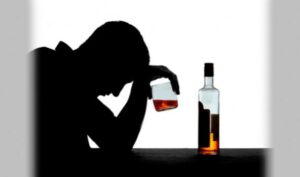Depression is a serious mental illness that can impact your life in many ways. It can make it difficult to get out of bed in the morning, focus on tasks, or enjoy activities that you once loved. Depression can also lead to problems in relationships, decreased productivity at work, and even suicidal thoughts. In this blog post, we will discuss 8 surprising causes of depression and how you can prevent it from impacting your life!
Contents
Defining Depression
 Depression is more than just feeling blue. It’s a serious mental health condition that has an impact on every area of your life. This condition is a complex mix of emotional, physical, and behavioral symptoms. It’s more than just sadness or feeling down for a period of time. Depression is a serious mental illness that can have lasting effects on your mood, thoughts, and behavior.
Depression is more than just feeling blue. It’s a serious mental health condition that has an impact on every area of your life. This condition is a complex mix of emotional, physical, and behavioral symptoms. It’s more than just sadness or feeling down for a period of time. Depression is a serious mental illness that can have lasting effects on your mood, thoughts, and behavior.
Moreover, people with depression may have trouble functioning in their daily lives. They may have difficulty sleeping, eating, or concentrating. Depression can also lead to physical problems, such as headaches and stomachaches. More often, people with depression may turn to alcohol or drugs to ease their symptoms.
Symptoms
There are some common symptoms of depression, which include:
- Feeling sad or down most of the time
- Losing interest in activities that used to bring you joy
- Feeling tired all the time
- Having trouble sleeping or sleeping too much
- Changes in appetite or weight
- Feeling worthless or guilty
- Difficulty concentrating or making decisions
- Thoughts of death or suicide
These symptoms are more than just a case of the “blues.” They last for more than a few days and interfere with your ability to function in your everyday life. If you have any of these symptoms, it’s important to seek professional help. For that reason, it’s important to be aware of the potential causes of depression.
Top 8 Causes Of Depression
The causes of depression are varied and complex. In fact, there are many different factors that can contribute to the development of depression. Here are 8 surprising causes of depression that you may not be aware of:
Brain Chemistry
In cases of depression, brain chemistry is one of the most important contributing factors. Imbalances in certain chemicals, such as serotonin and norepinephrine, can lead to depression. Also, it is considered that people who are depressed may have a genetic predisposition to these chemical imbalances.
Moreover, these imbalances in the brain can cause other problems such as sleep disturbances, which can further contribute to depression. Researchers have also found that people who are depressed tend to have lower levels of brain-derived neurotrophic factor (BDNF). This chemical is responsible for helping the brain create new nerve cells. And low levels of BDNF have been linked to depression.
Stressful Life Events
It is well-known that stressful life events can lead to depression. These can include:
- the death of a loved one,
- financial problems,
- relationship difficulties,
- or even just moving to a new place.
However, what is not as well-known is that even positive life events can lead to depression. Things like getting married, having a baby, or getting a promotion at work can all be stressful and lead to depression. Though these are positive and exciting events. They can still be stressful and cause a person to feel overwhelmed.
Hormone Levels
The causes of depression are not always clear. However, a change in hormone levels may be one cause. This can happen with:
- Pregnancy
- Menopause
- Thyroid problems
During these situations, it’s important to talk with a doctor about how you’re feeling. Hormone changes are often temporary and treatable. And, depression is likelier to happen if there’s a family history of the condition.
Medical Conditions
Medical conditions can lead to depression. For example, someone with a chronic illness may become depressed. Depression can also be caused by medications used to treat other conditions. Some of those medical conditions are:
- Cancer
- Heart disease
- Diabetes
- Stroke
- Alzheimer’s disease or other forms of dementia
These conditions actually cause changes in the brain that lead to depression. Also, people who have chronic pain may also be more likely to become depressed. Moreover, people with thyroid problems may also be at risk for developing depression.
Substance Abuse
 People who abuse drugs are at increased risk of developing depression. Drugs can change the way your brain functions, which can lead to problems with mood and mental health. Substance abuses are basically of two types- alcohol and drugs. Alcohol is a depressant, which means it can make you feel sad, anxious, and hopeless. Drugs are also known to cause changes in the brain that can lead to depression.
People who abuse drugs are at increased risk of developing depression. Drugs can change the way your brain functions, which can lead to problems with mood and mental health. Substance abuses are basically of two types- alcohol and drugs. Alcohol is a depressant, which means it can make you feel sad, anxious, and hopeless. Drugs are also known to cause changes in the brain that can lead to depression.
These are some of the surprising causes of depression. If you or someone you know is struggling with depression, there are many resources available to help. Talk to your doctor about what treatment options are available.
Sleep Problems
Sleep problems are one of the most common causes of depression. People who are depressed often have trouble sleeping or sleep too much. They may also have:
- insomnia
- hypersomnia
These conditions are often undiagnosed and untreated. If you think you might have a sleep problem, talk to your doctor. More often, these problems are treated with medication and counseling.
Lack of Physical Activity
People who are depressed often don’t have the energy or motivation to exercise. This can make the depression worse. Exercise releases endorphins, which have mood-boosting effects. So lack of physical activity can lead to a downward spiral of depression. In fact, it is one of the most common causes of depression.
It is essential to understand the causes of depression, so you can take steps to prevent it. If you are feeling depressed, talk to your doctor. There are many effective treatments for depression, so don’t suffer in silence.
Genetics
 Depression can also be caused by genetics. If you have a family member who suffers from depression, you may be more likely to develop the condition yourself. Moreover, genes are not the only factor. If you have a family member who suffers from depression and you yourself experience stressful life events, your risk of developing depression is even higher.
Depression can also be caused by genetics. If you have a family member who suffers from depression, you may be more likely to develop the condition yourself. Moreover, genes are not the only factor. If you have a family member who suffers from depression and you yourself experience stressful life events, your risk of developing depression is even higher.
Moreover, this is considered to be one of the most important causes of depression. In fact, research has suggested that depression is 50% heritable. This means that if your parent has depression, you have a 50% chance of developing it as well.
So, these are the major eight causes of depression. Some of them are within our control and some are not. But, the good news is that we can always try to prevent depression by being aware of its causes. Also, by taking necessary precautions.
Consequences Of Depression
Depression is a condition that impacts not only the person suffering from it. But also those around them. Here are some of the ways in which depression can negatively impact those close to the sufferer:
Communication Problems
When someone is depressed, they may struggle to express how they’re feeling. This can lead to misunderstandings and difficulties in relationships. In fact, communication problems are one of the most common complaints among couples where one partner is depressed.
Increased Conflict
Depression can also lead to increased conflict. This is because depressed people may have difficulty coping with stress. And maybe more likely to lash out. Additionally, they may withdraw from those around them, which can make it difficult to resolve disagreements.
Emotional Distance
People with depression are more likely to keep their emotions inside. They may not want to burden others with their problems, or they may feel like no one could possibly understand what they’re going through. This emotional distance can cause isolation and make it harder for people to get the help they need.
Lack of Interest in Activities You Used to Enjoy
When you are dealing with depression, even the things you used to love can lose their appeal. You may stop going out with friends, avoid your hobbies, and generally pull back from life. This lack of interest can be one of the most troubling symptoms of depression.
Physical Symptoms
Depression can also cause physical symptoms. These can include fatigue, headaches, and stomach problems. Often, people with depression will have multiple physical symptoms that don’t seem to be related to any specific illness.
Changes in Sleep Patterns
Depression can cause changes in sleep patterns. This can mean either sleeping too much or having trouble sleeping. People with depression may find that they can’t get out of bed in the morning, or they may find themselves sleeping during the day.
These are some of the consequences depression can have on those close to the sufferer. It’s important to be aware of them, so you can help yourself and better support your loved one.
Treatment For Depression

Treatment is required when depression is severe. The most common type of treatment is psychotherapy or counseling. In some cases, medication may be necessary to help stabilize moods. If you think you might be depressed, it’s important to seek professional help.
The good news is that depression is treatable. With the right kind of help, most people can recover from the causes of depression. here are some of the treatment options, these include:
Psychotherapy
Psychotherapy is also called “talk therapy,” this is a key part of treatment for depression. It can help you understand your illness and learn new ways to cope with the symptoms. More often, psychotherapy is divided into two parts mainly;
Cognitive-behavioral therapy (CBT): This is a type of psychotherapy that helps you learn to identify and change negative thinking patterns and behaviors that may be contributing to your depression.
Interpersonal therapy (IPT): This is a type of psychotherapy that focuses on your relationships with others and how they might be affecting your depression.
So, these two are the most commonly used types of psychotherapy in the treatment of depression. You can contact Mantra Care for the best treatment of depression.
Medication
For some people with depression, medication may be necessary to help stabilize their moods. The most common type of medication used to treat depression is antidepressants. Antidepressants are a class of drugs that work on the chemicals in your brain that may be out of balance.
There are many different types of antidepressants, and it may take some trial and error to find the one that works best for you. It’s important to give the medication a chance to work. It can take several weeks—and sometimes longer—before you start feeling better.
Find Support Groups

Support groups are considered one of the best treatments for depression. These groups provide a safe place to share your experiences and feelings with others who are going through similar challenges.
Support groups are led by trained facilitators and are usually held in community settings, such as churches or libraries. Some support groups meet online. You can also find a support group that meets in person. You can contact Mantra Care for finding the best support group.
As Mantra Care is an online platform that provides mental health services around the globe. So, anyone can get help from them no matter where they live. You can book your free consultation today to get started!
Prevention Tips
Although treatment is required in many cases of depression, there are some things you can do to prevent it. In fact, prevention is also important to avoid serious health consequences. And eventually, keep your quality of life high.
Here are some tips to prevent depression:
Get regular exercise
Exercises are often considered a way to improve mood. But it can also be helpful in preventing depression. Regular exercise can reduce the risk of developing depression by up to 30%. Also, it can be as effective as antidepressants in some people.
Eat a healthy diet
There is evidence that what you eat can affect your mood. Eating a healthy diet is important for overall health. But it may also help prevent depression. Some studies have found that people who ate a Mediterranean-style diet were less likely to be depressed. The diet includes lots of fruits, vegetables, whole grains, olive oil, and fish.
Get enough sleep
Sleep is important for physical and mental health. It can also be helpful in preventing depression. Some studies have found that people who slept less than six hours a night were more likely to be depressed. So make sure you get enough rest. In addition, understand the importance of dreams and how to interpret them.
Talk to someone you trust
If you’re feeling depressed, talking to someone you trust can be helpful. It can be a family member, friend, therapist, or doctor. Talking about your feelings can help you understand and deal with them. It can also be a form of self-care. In fact, identifying your early warning signs of depression can help you prevent it.
Do something you enjoy
When you’re feeling depressed, it can be hard to find the motivation to do anything. But doing things you enjoy can help improve your mood and prevent depression. It doesn’t have to be something big or time-consuming. Just take some time for yourself to do things you enjoy every day. This can be anything from reading, going for a walk, or listening to music.
Avoid drugs and alcohol
Drugs and alcohol can lead to depression. They can also make it worse. So it’s important to avoid them if you’re struggling with depression. If you need help, there are many resources available to get you started on the road to recovery. In fact, it causes changes in the brain that can be difficult to reverse.
Learn healthy coping mechanisms
Healthy coping skills are important in managing depression. Some healthy coping mechanisms include:
- Deep breathing
- Meditation
- Spending time outdoors
- Spending time with friends and family
- Journaling
- Listening to music
These are just a few examples, but there are many more healthy coping skills that can help manage depression. Talk to your doctor or mental health professional about what coping skills might be right for you.
Be patient with yourself
If depression is something you’re struggling with, it’s important to be patient with yourself. Change takes time and it’s okay if you don’t see results immediately. Trust that the things you’re doing to manage your depression will help in the long run. Because things can get better with time. You just need to be patient and keep up the good work.
So, these are some prevention tips to avoid depression. Depression is a serious issue, but it is one that can be managed with the right treatment. If you or someone you know is struggling with depression, don’t hesitate to reach out for help. There are many resources available to help.
Conclusion
To conclude, the causes of depression are actually quite varied. From medical conditions to poor nutrition, many things can contribute to this mental illness. However, by being aware of the potential causes and taking steps to prevent them, you can reduce the risk of developing depression more severity.
Moreover, if you are already struggling with depression, know that you are not alone. There are many people who understand what you’re going through and want to help. Seek out a therapist or other mental health professional to get the help you need to start feeling better.
For more information, please contact MantraCare. Depression is a mental illness characterized by persistent feelings of sadness, hopelessness, and loss of interest in daily activities. If you have any queries regarding Online Depression Counseling experienced therapists at MantraCare can help: Book a trial Depression Therapy session


